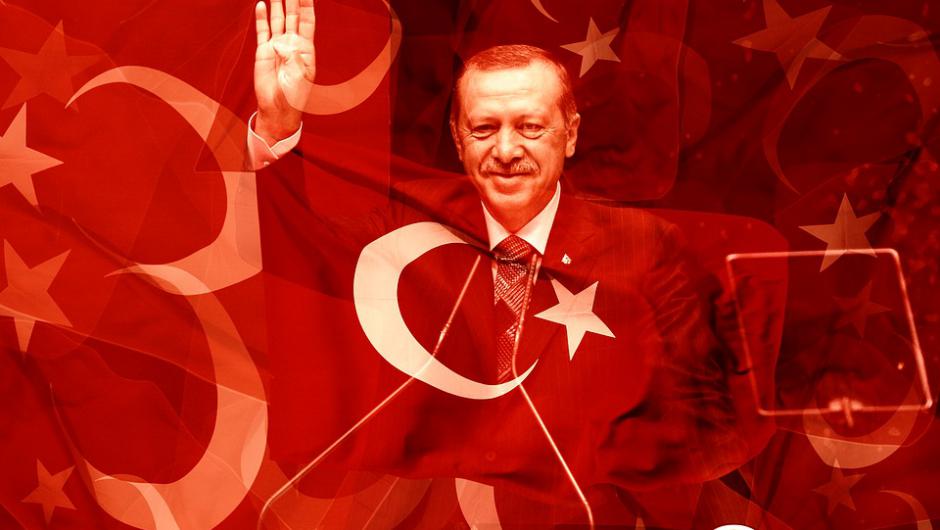The Turkish Patient

Now we have it in black and white: The Turkish society is deeply divided! In the historical referendum on the constitutional change, President Erdoğan and his government celebrated a conceivably close victory. Whereas approximately 51.4 percent of the population agreed on the proposal, 48.6 percent of the Turkish population refused it. The political map shows that the three biggest cities of the country – Istanbul, Ankara and Izmir –, Thrace, the Aegean and Mediterranean Sea and the Kurdish dominated South-East of the country voted no, while the inland and the Black Sea region voted yes. Especially the loss of the densely-populated metropolises gives food for thought to the government. A constitution – justifiably seen as articles of association – which is only supported by half of the population and vehemently rejected by the other half, will hardly unify the country. For a power-greedy politician as Erdoğan, 50 percent plus one vote would have been enough to speak of a “historic victory”. But for everybody who cares about the future of the country, this result should give rise to a concern.
This “victory” feels like a defeat for Erdoğan
An extremely unfair election campaign ended on Sunday evening. Although the voter turnout of more than 85 percent is high compared to Western European standards, we can hardly speak of a win of democracy, as Erdoğan did in a first statement after the result was published. The mere fact that such a vital referendum took place under the state of emergency should cause a headache to all the supporters. The no-camp was harassed by public authorities during the whole campaign. Supporters of the no-campaign were insulted as “terrorists” and “traitors” by the highest authorities. Many Kurdish politicians, whose immunity was lifted before, were arrested. Public media let politicians of the opposition hardly express their opinions and events were cancelled spontaneously by simply turning off the electricity. On the contrary, the yes-camp used all imaginable financial and logistic possibilities of the state. Almost one year long President Erdoğan pushed his people to vote yes. He threatened, warned and released hundreds of thousands civil servants, teachers and judges. Turkey became the biggest jail for journalists worldwide because he closed almost every single critical media or forced them to follow the governmental line. He started a civil war, depopulated the Kurdish region and forced countless of his political opponents to leave the country. Per constitution, Erdoğan is still obligated to be impartial. Nevertheless, he misused opening ceremonies to impersonate as a great campaigner. Apparently, all of this was not enough for a victory in the referendum – in the end, the public election commission contributed. With a controversial act, the commission decided to accept unleashed election letters, which is illegal according to Turkish law. The consequences of the scandalous decision of the election commission are still unclear. Maybe Erdoğan and his yes-camp would have won anyway. But with this decision, a dark shadow fell over the election. This will not be forgotten quickly. In the same night, hundreds of people, who felt cheated, went on the streets in Ankara and Istanbul to protest against the result.
Quo Vadis, Turkey?
Death penalty, referendum on EU-membership, attacks on the West – during the campaign, Erdoğan acted like a bull in a china shop. A lot got broken. Will this damage recover? It will be difficult. Already the first appearance of Erdoğan and his Prime Minister with an expiration date, Yıldırım, showed that they will pick up where they left off. Yıldırım crashed against the West and Erdoğan welcomed callings on death penalty. After such a narrow victory, a rhetorical disarmament would be of great importance.
At the moment, is it hard to predict which direction Turkey will take. It was Erdoğans ultimate goal to establish a Presidential system. Now, it is his turn to care about the future of his people and his country. People, who are deeply divided and polarised, and a country which is confronted with huge economic and social problems.
Due to the huge amount of elections over the last years, Turkey is tired of voting and lost a lot of energy and time. Now it is Erdoğans time to deliver, because he blamed the “internal and external” enemies for all crises as well as for the Parliamentary System. He must have got rid of the enemies by now, and, he has his praised Presidential System. He promised “prospering landscapes” to the people. The result was extremely narrow – if he will not deliver, it might be narrower the next time.